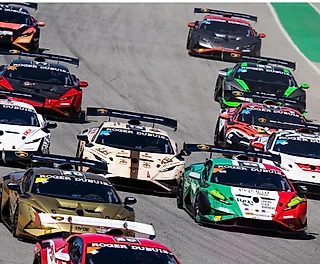Samsung Group может быть заинтересована в Формуле?
Samsung Group может быть заинтересована в Формуле?
Придет ли Самсунг в Формулу? Об этом размышляет журналист Джо Савар. Приводим отрывок из его блога.
F1 in Korea
October 19, 2011 by Joe Saward
The Korean Grand Prix provided Formula 1 fans with a super performance from Sebastian Vettel, but the hopes of an increase in spectators from 160,000 to 200,000 over the weekend did not become a reality, despite the fact that ticket prices were dropped by 30 percent. The financial results may not be very different, however, as in 2010 thousands of tickets were given away to ensure that the grandstands were full. There has been some criticism of the event in the region because it is not doing as well as had been hoped. The local authorities are involved because they want to use the Grand Prix as part of the plan to develop the South West Coast Tourism & Leisure City mega-project, which is due to be completed by 2025. Without the new city, however, the concept of the race is meaningless and the problems with the world economy mean that international investment in the new city has been lower than hoped. Thus there are noises that are beginning to suggest that the F1 race is not such a great idea. The contract lasts until the 2016 event, with a further five-year option beyond that, and while the local politicians are busy talking about the intangible benefits of the race, opponents are looking at the numbers and there may come a point when the politicians may wish to offload the race. The good news is that there are already whispers that another Korea group might be interested, and would not need to rely on public money.
The Samsung Group accounts for about 20 percent of the country’s exports and has wide-ranging interests in different industries, including consumer electronics, financial services, chemicals, heavy industry, including ship-building, engineering and construction, retail and entertainment, clothing, advertising, education, medical service and general trading. It used to own its own car company as well but this is now largely owned by Renault. Among the many divisions is the Shilla Hotel company, which includes hotels, restaurants and duty free shops. On top of all this the group owns Samsung Everland, the first theme park built in South Korea (back in the 1970s), which is now one of the most-visited in the world. This includes much the as western theme parks, but also own Everland Raceway, which was Korea’s first racing circuit, in addition to Korea’s first car museum.
The track is only 1.5 miles in length and not at all suitable for F1, but there is plenty of room for expansion and the facility is located close to Seoul and a light railway link called EverLine is now completed and will link the park to the Seoul subway system.
There are therefore a number of good reasons why Samsung would be interested in getting involved with the Grand Prix, from a finanical and strategic point of view. There is also a new generation of management gaining more influence and a controversial past which the company would like to get rid of. An involvement with international sporting events is always a good way to win popularity and it is worth noting that since a slush fund scandal in 2008 claimed company chairman Lee Kun-hee, the firm has been integrally involved in winning the 2018 Winter Olympics for the city of Pyeongchang. At the end of 2009 Lee received an official pardon in order to work on the Pyeongchang bid and he has since returned to his previous role as chairman.




